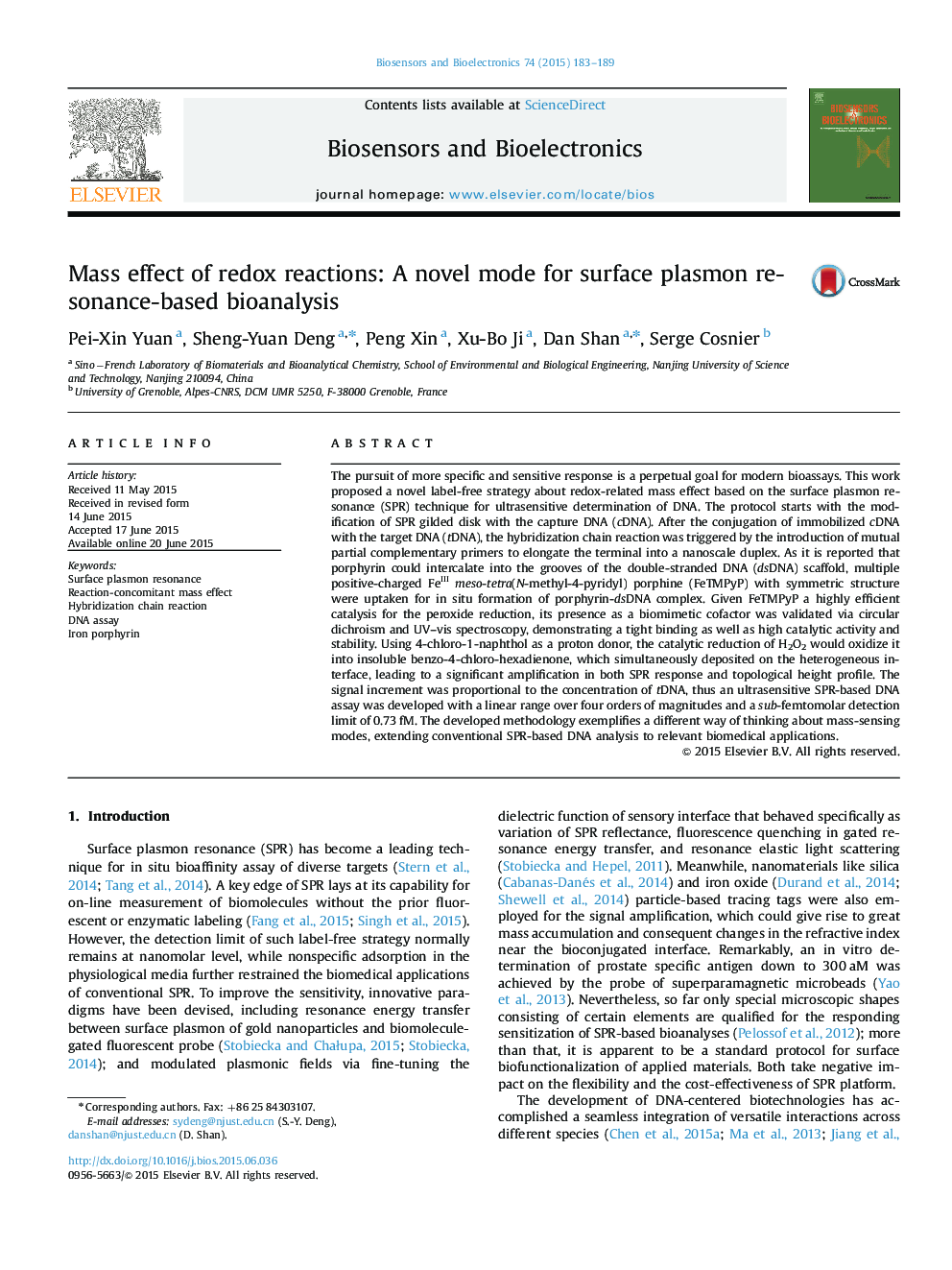| Article ID | Journal | Published Year | Pages | File Type |
|---|---|---|---|---|
| 7231623 | Biosensors and Bioelectronics | 2015 | 7 Pages |
Abstract
The pursuit of more specific and sensitive response is a perpetual goal for modern bioassays. This work proposed a novel label-free strategy about redox-related mass effect based on the surface plasmon resonance (SPR) technique for ultrasensitive determination of DNA. The protocol starts with the modification of SPR gilded disk with the capture DNA (cDNA). After the conjugation of immobilized cDNA with the target DNA (tDNA), the hybridization chain reaction was triggered by the introduction of mutual partial complementary primers to elongate the terminal into a nanoscale duplex. As it is reported that porphyrin could intercalate into the grooves of the double-stranded DNA (dsDNA) scaffold, multiple positive-charged FeIIImeso-tetra(N-methyl-4-pyridyl) porphine (FeTMPyP) with symmetric structure were uptaken for in situ formation of porphyrin-dsDNA complex. Given FeTMPyP a highly efficient catalysis for the peroxide reduction, its presence as a biomimetic cofactor was validated via circular dichroism and UV-vis spectroscopy, demonstrating a tight binding as well as high catalytic activity and stability. Using 4-chloro-1-naphthol as a proton donor, the catalytic reduction of H2O2 would oxidize it into insoluble benzo-4-chloro-hexadienone, which simultaneously deposited on the heterogeneous interface, leading to a significant amplification in both SPR response and topological height profile. The signal increment was proportional to the concentration of tDNA, thus an ultrasensitive SPR-based DNA assay was developed with a linear range over four orders of magnitudes and a sub-femtomolar detection limit of 0.73Â fM. The developed methodology exemplifies a different way of thinking about mass-sensing modes, extending conventional SPR-based DNA analysis to relevant biomedical applications.
Related Topics
Physical Sciences and Engineering
Chemistry
Analytical Chemistry
Authors
Pei-Xin Yuan, Sheng-Yuan Deng, Peng Xin, Xu-Bo Ji, Dan Shan, Serge Cosnier,
